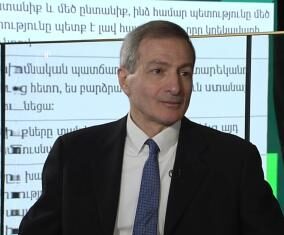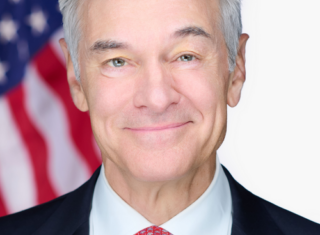Throughout 2023 there has obviously been more intensified US engagement in the South Caucasus, and more active relations with Armenia. This has been the case starting from the 44-day war in 2020 unleashed by Azerbaijan. Since the end of the war Armenian authorities have been willing to establish diplomatic relations with two immediate neighbors, Azerbaijan and Turkey, which fully aligns with the geopolitical interests of the United States.
The US strives for decreased Russian influence in the South Caucasus region and reconciliation of Armenian-Turkish and Armenian-Azerbaijani relations would provide such an opportunity. Essentially, normalization of Armenian-Turkish relations has been a US foreign policy priority for the region since the 1990s. Accordingly, it comes as no surprise that the US has been much more active in the region for the last 3 years, given the new realities.
As the United States is seeking the improvement of Azerbaijani-Armenian relations, it was cautious about the processes that might hinder the negotiations. The closure of the Lachin corridor by Azerbaijan was such an example. The blockade of Artsakh by Azerbaijan started back in 2022, in December and continued through September 2023 when Azerbaijan resorted to force, conducting ethnic cleansing against the indigenous Armenian population. The first US reaction to the closure of the corridor came on the second day of the Artsakh blockade. However, those were just statements without any concrete steps. A month later, Antony Blinken had a phone call with the Armenian prime minister as well as the Azerbaijani president. In his phone call with President Ilham Aliyev, Blinken “underscored the need for free and open commercial and private transit through the Lachin corridor.”
In the following months, there were a number of other statements by members of Congress, especially those involved in the Armenian Congressional Caucus, who condemned Azerbaijani actions and called upon the US administration to support the Artsakh population and stop the provision of assistance to Azerbaijan.
Obviously, the State Department and Secretary Blinken also made a number of statements on the issue during 2023. However what’s important is that in those statements the US specifically expressed its willingness to facilitate negotiations between Armenia and Azerbaijan.
Taking into account the situation around Artsakh after the 2020 war and the willingness of the Armenian authorities to establish diplomatic relations with Azerbaijan and Turkey, the US has become significantly more active in regulating relations between Armenia and Azerbaijan, as well as between Armenia and Turkey. In a series of statements, the US administration expressed its willingness to support Azerbaijan and Armenia in the implementation of negotiations.








